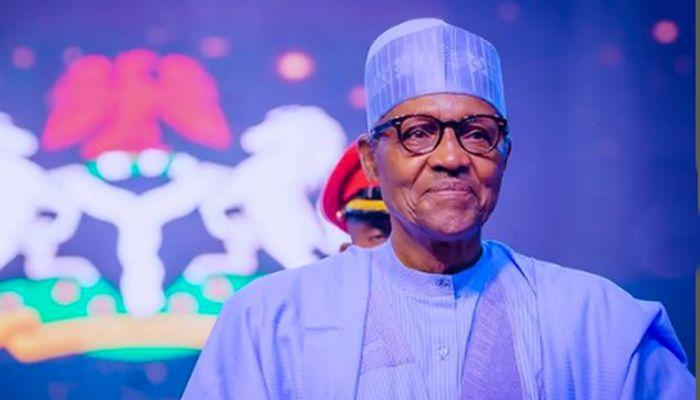Former President Muhammadu Buhari has died at the age of 82. His death was confirmed on Sunday, July 13, 2025, at a London hospital where he had been receiving treatment for undisclosed health issues.
Buhari, who was born on December 17, 1942, in Daura, Katsina State, leaves behind a profound and sometimes controversial legacy as both a military leader and two-term civilian president.
His passing marks the end of an era for Nigeria’s modern political history.
Here are 12 essential things to know about the life and career of Muhammadu Buhari:
1. Early Life and Background:
Buhari was born into a Fulani Muslim family in Daura, Katsina State. He was the 23rd child of his father, Mallam Hardo Adamu, and was raised by his mother, Zulaihat, after his father’s death.
2. Military Training and Career:
He joined the Nigerian Military Training College (NMTC) in 1962 and trained further at the Mons Officer Cadet School in Aldershot, England, becoming a second lieutenant in 1963. Buhari actively participated in the Nigerian Civil War (1967–1970).
3. Governor and Oil Minister:
During the military era, Buhari served as military governor of the former North-Eastern State in 1975 under General Murtala Mohammed. Later, he was appointed Federal Commissioner (Minister) for Petroleum and Natural Resources under General Olusegun Obasanjo.
4. Military Coup and Head of State (1983–1985)
On December 31, 1983, Buhari led a military coup that toppled President Shehu Shagari’s civilian government. As military head of state, he implemented strict anti-corruption measures and launched the War Against Indiscipline (WAI) to promote public morality and order.
5. War Against Indiscipline (WAI):
Buhari’s WAI campaign sought to instill discipline in Nigerian society through measures like orderly queues, sanitation enforcement, and strict punishments for minor infractions. While some praised the effort, others criticized it as excessively authoritarian.
6. Overthrown and Detention:
Buhari’s regime was ousted in another coup led by General Ibrahim Babangida on August 27, 1985. Buhari was imprisoned and held in detention until 1988, after which he largely stayed out of public life for a period.
7. Petroleum Trust Fund (PTF) Era:
In 1994, General Sani Abacha appointed Buhari as Executive Chairman of the Petroleum Trust Fund (PTF), managing billions of naira in oil revenue earmarked for infrastructure and development projects.
8. Multiple Presidential Runs:
Buhari entered politics in Nigeria’s Fourth Republic, contesting the presidency unsuccessfully in 2003, 2007, and 2011. He was known for his persistent ambition to return as a civilian leader.
Read also:
- Tinubu confirms Buhari ‘s death, orders Shettima to leave for London
- Breaking: Former Nigeria’s president Buhari has passed away in London
- I am deeply saddened by Buhari’s death – Okonjo-Iweala
9. Historic Presidential Victory in 2015:
In 2015, Buhari made history by winning the presidential election under the All Progressives Congress (APC), becoming the first opposition candidate to defeat an incumbent president, Goodluck Jonathan, in Nigeria’s democratic history.
10. Presidency and Economic Challenges (2015–2023):
Buhari’s tenure as president focused on anti-corruption, security, and economic reforms. His government launched policies like the Anchor Borrowers’ Programme and closed land borders to boost local production.
However, his administration faced criticism for economic recessions, high unemployment, and rising insecurity.
11. Health Struggles and Medical Trips:
Buhari frequently traveled to the United Kingdom for medical treatment during his presidency, fueling public debate about transparency and leadership stability. These prolonged absences sometimes sparked political uncertainty.
12. Family Life and Personality:
Buhari was married to Aisha Buhari and had several children. Despite his prominent public roles, he maintained a reserved and sometimes austere personal demeanor, earning him a reputation as a disciplined but distant leader.
Reactions have poured in from political leaders, world figures, and citizens across Nigeria.
President Bola Tinubu described Buhari as “a dedicated patriot who devoted his life to the service of the nation.”
Tributes highlight both his integrity and the controversies surrounding his leadership style and economic policies.
Flags are expected to fly at half-mast nationwide, and a national day of mourning is anticipated in honor of one of Nigeria’s most influential and polarizing figures.
Muhammadu Buhari’s life remains the subject of spirited debate. For some, he was a disciplined leader with an unwavering commitment to fighting corruption and securing Nigeria’s future.
For others, his tenure is marked by economic hardship, security crises, and authoritarian tendencies.
His passing closes a significant chapter in Nigeria’s complex political narrative.
